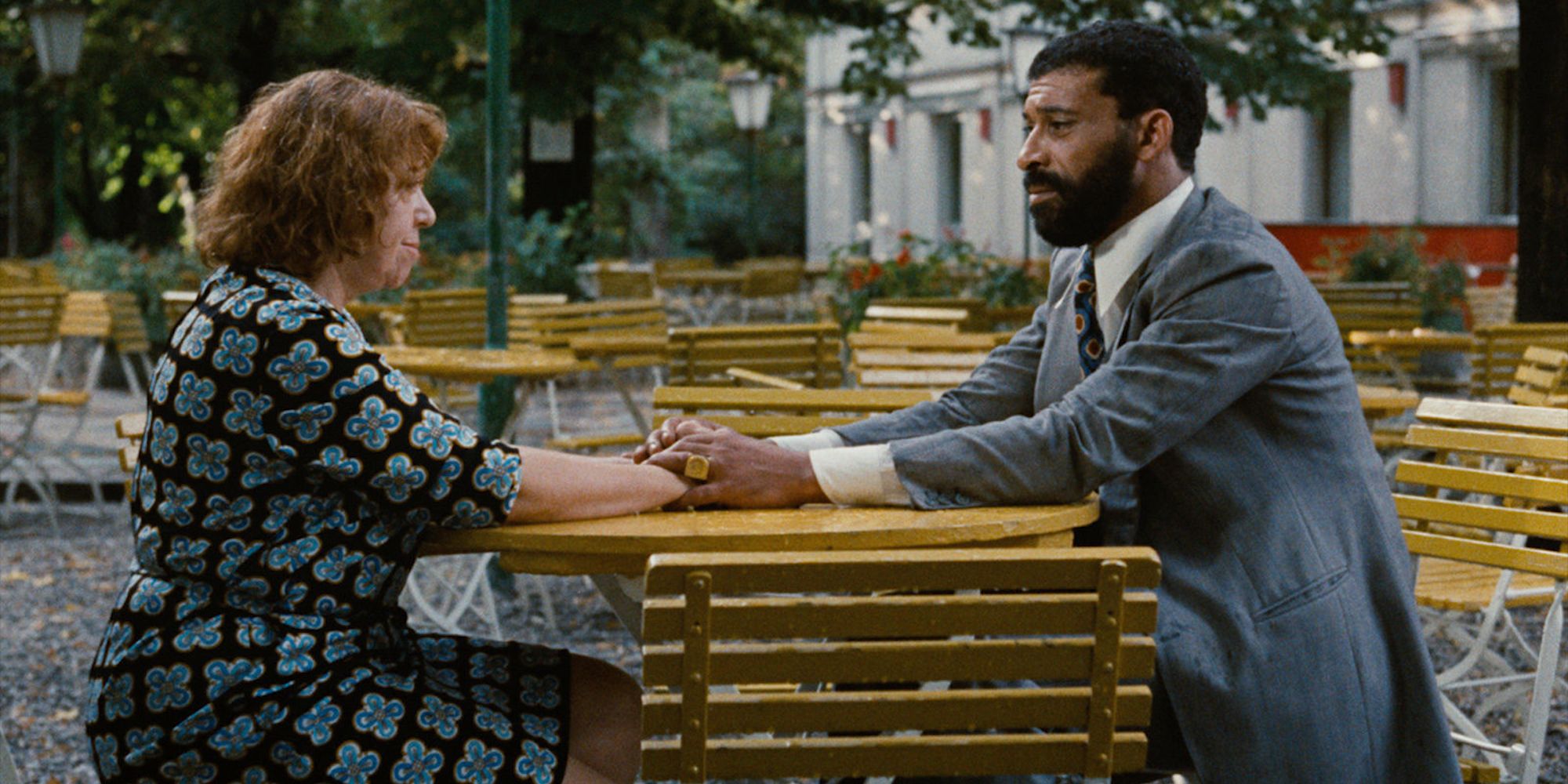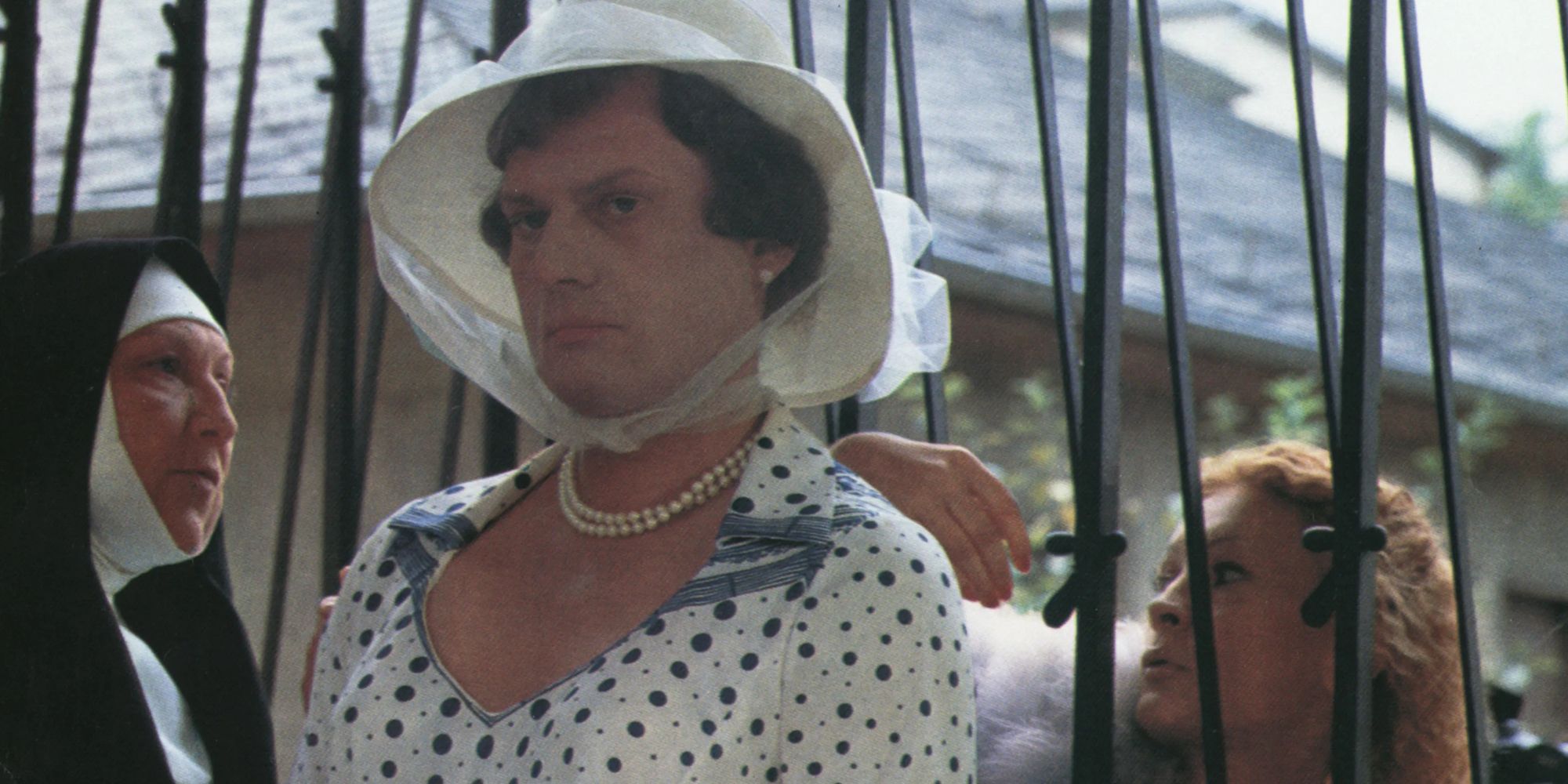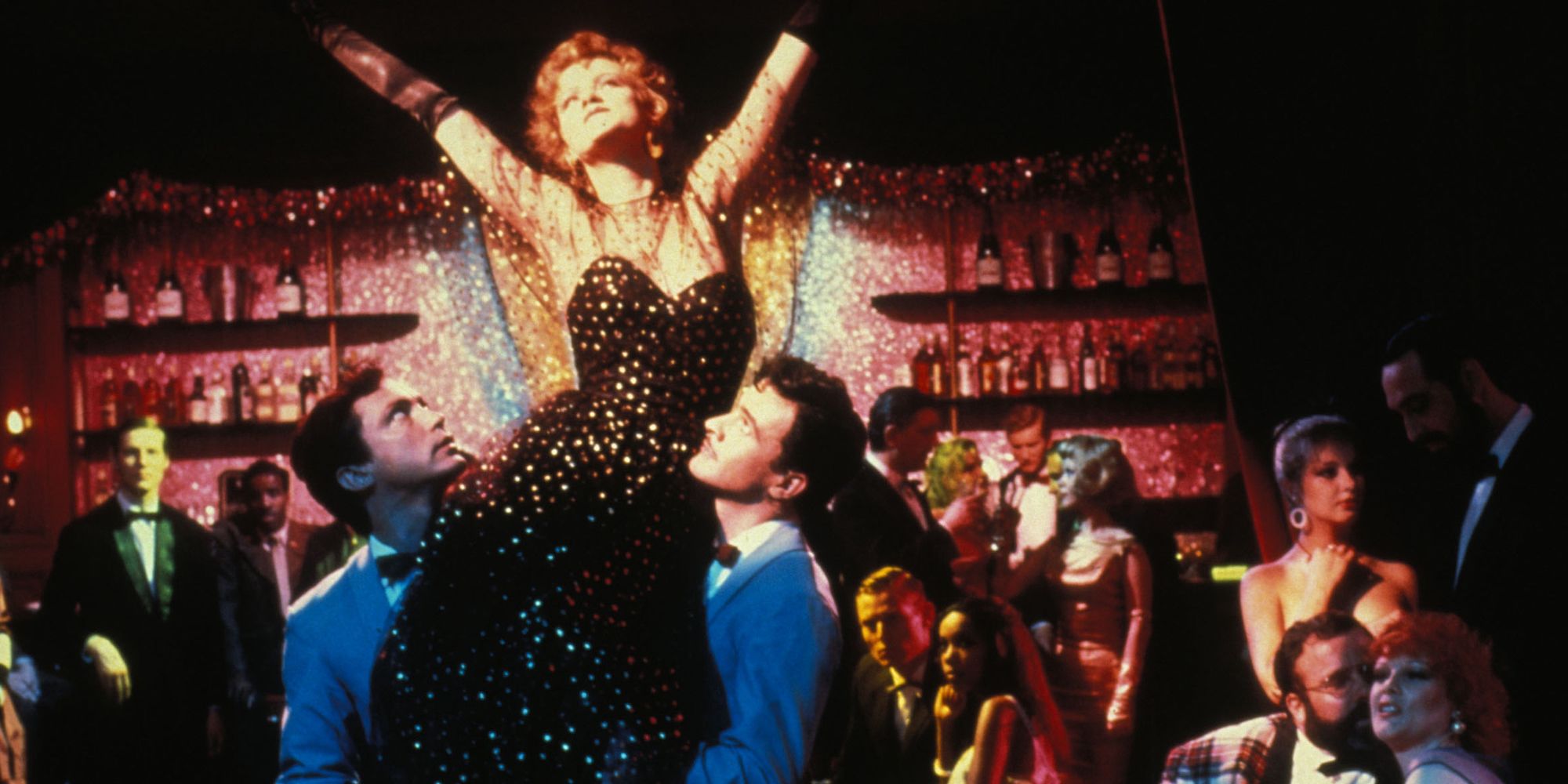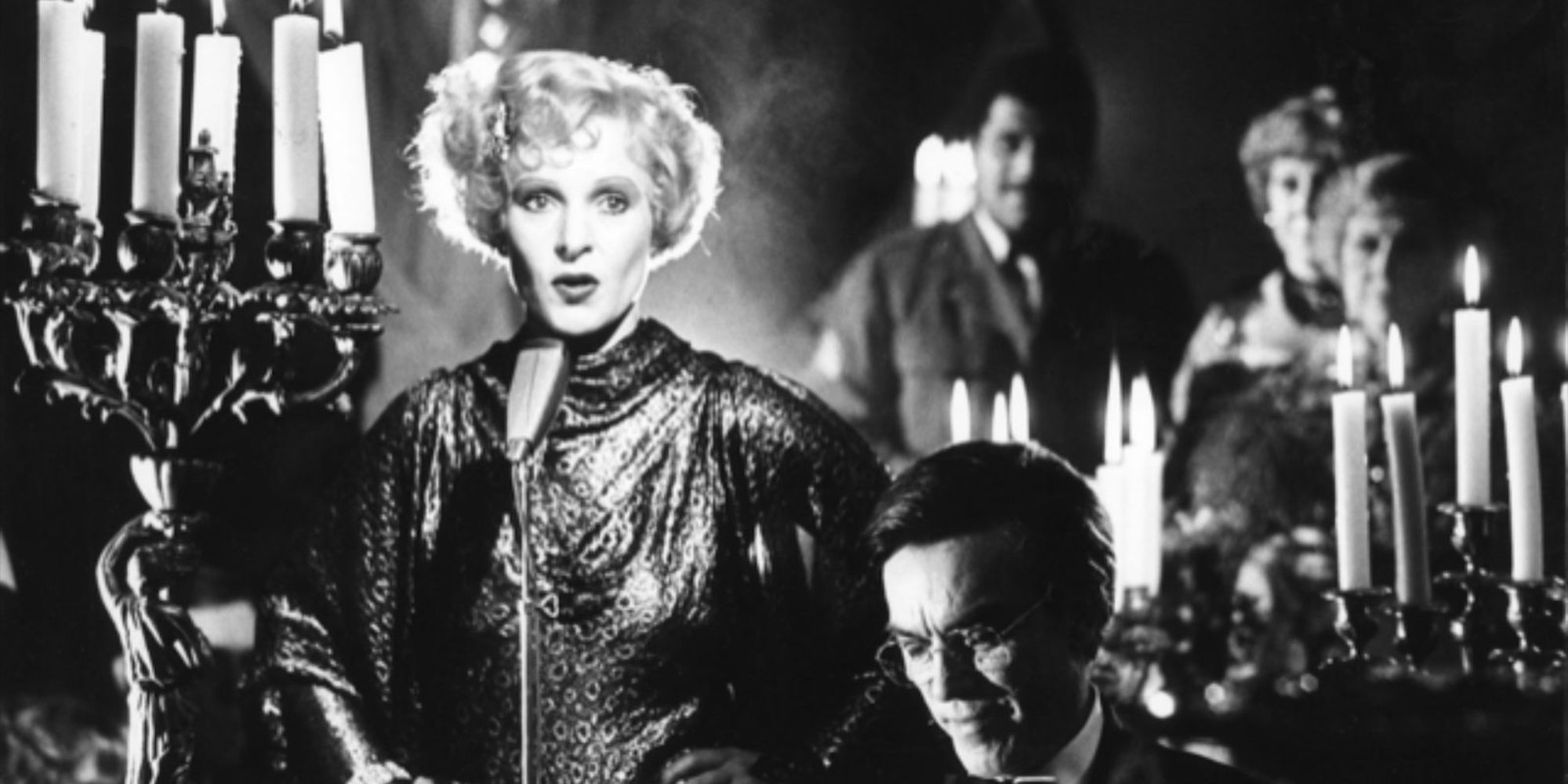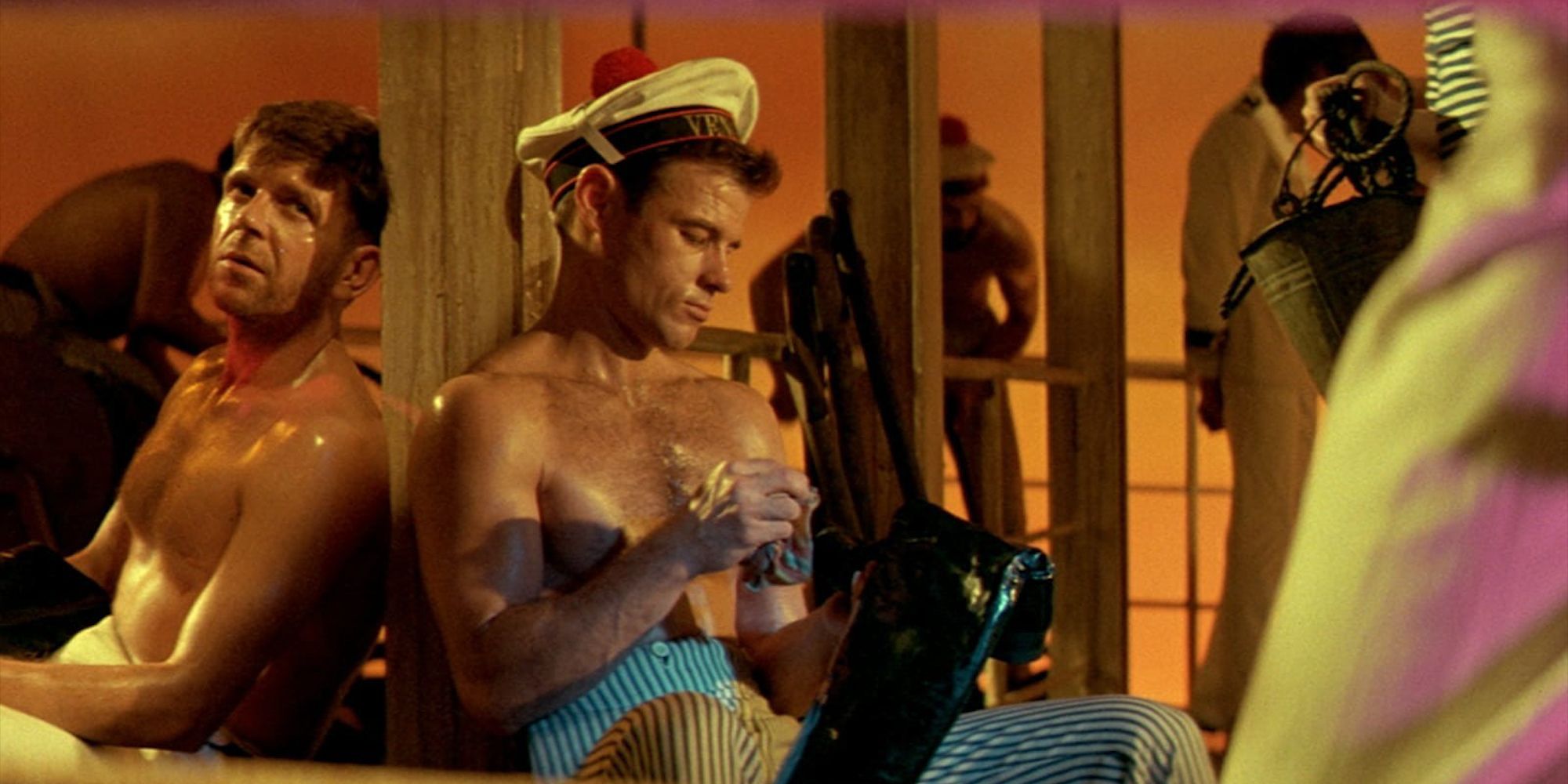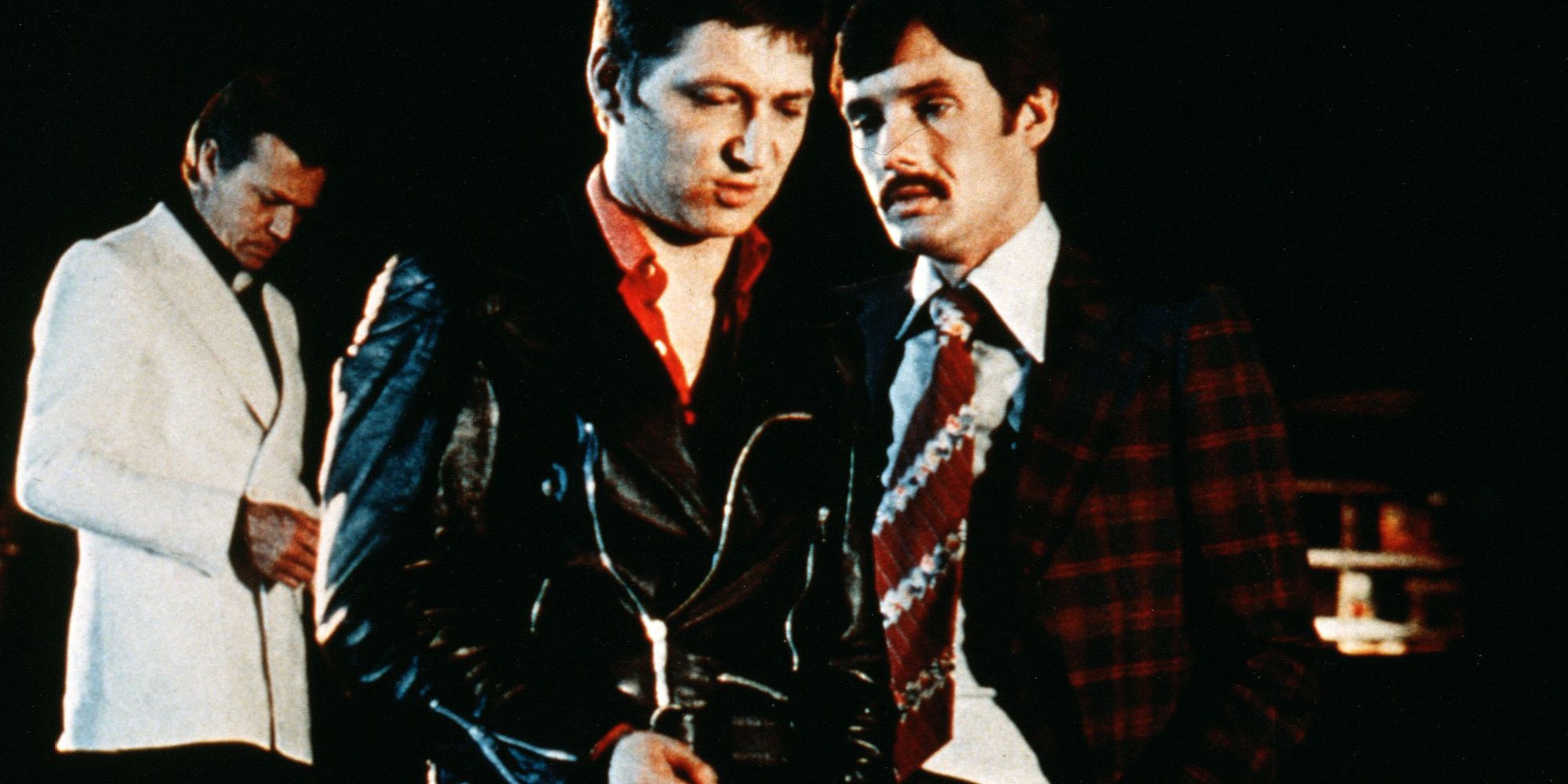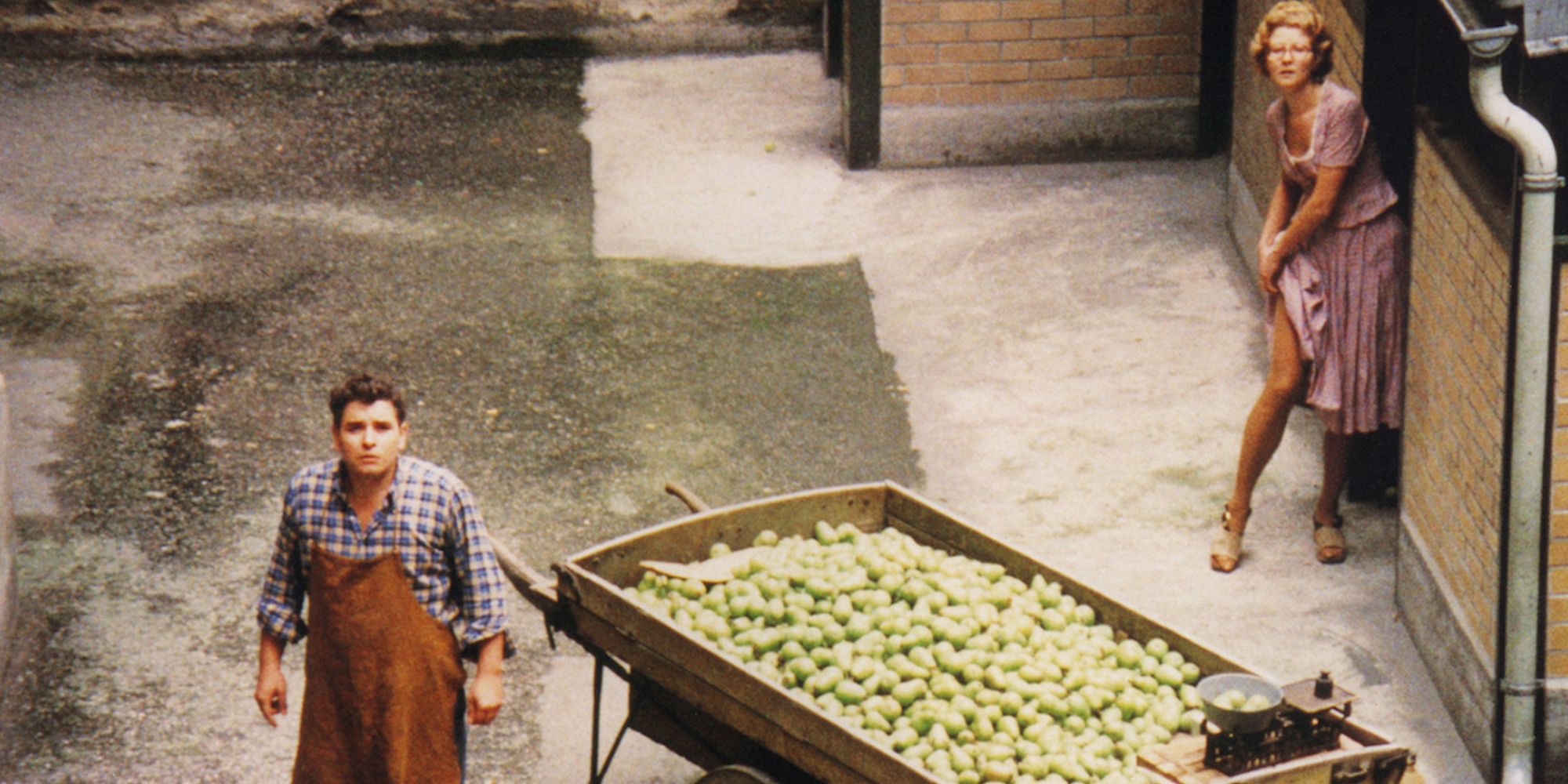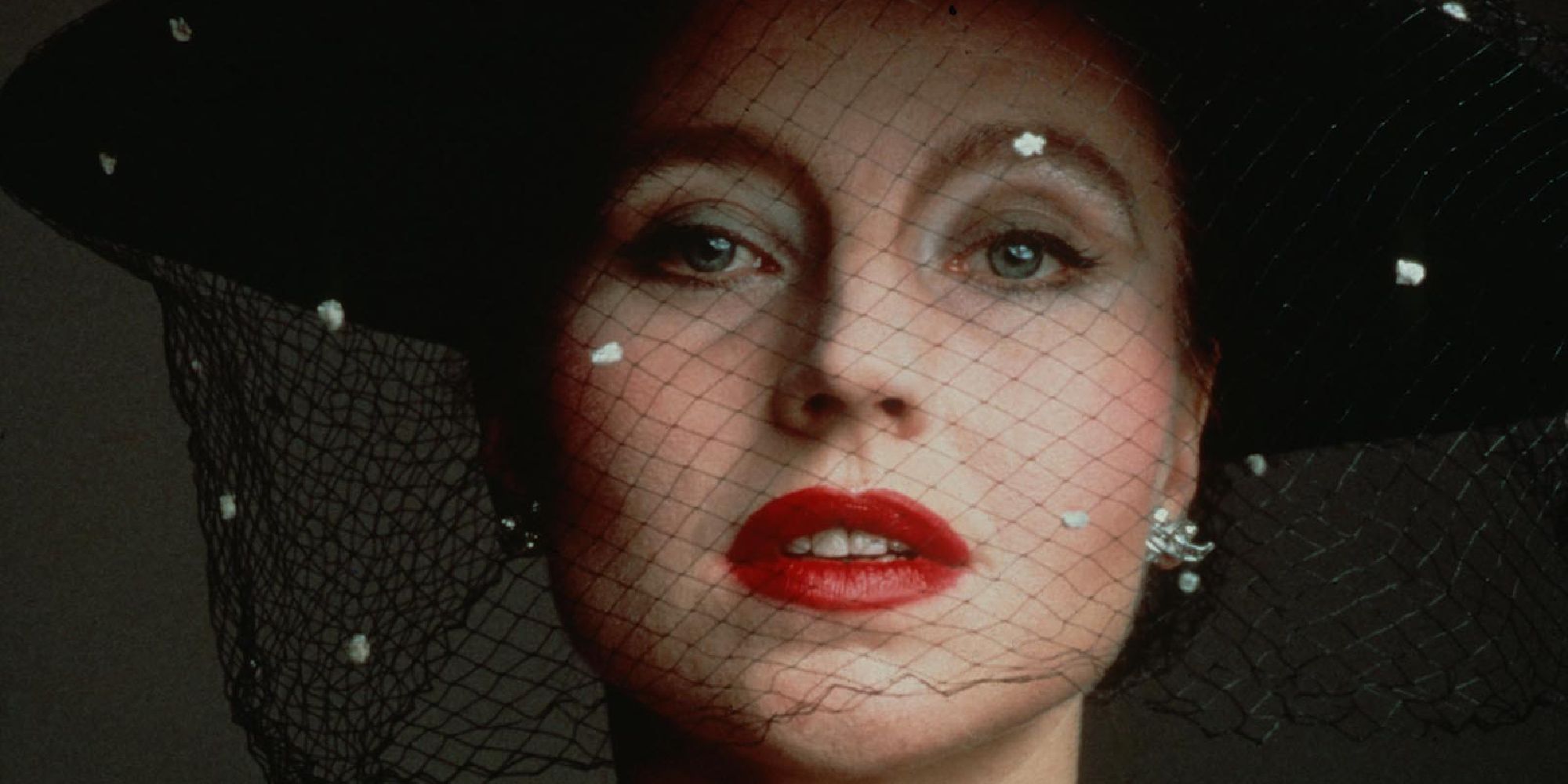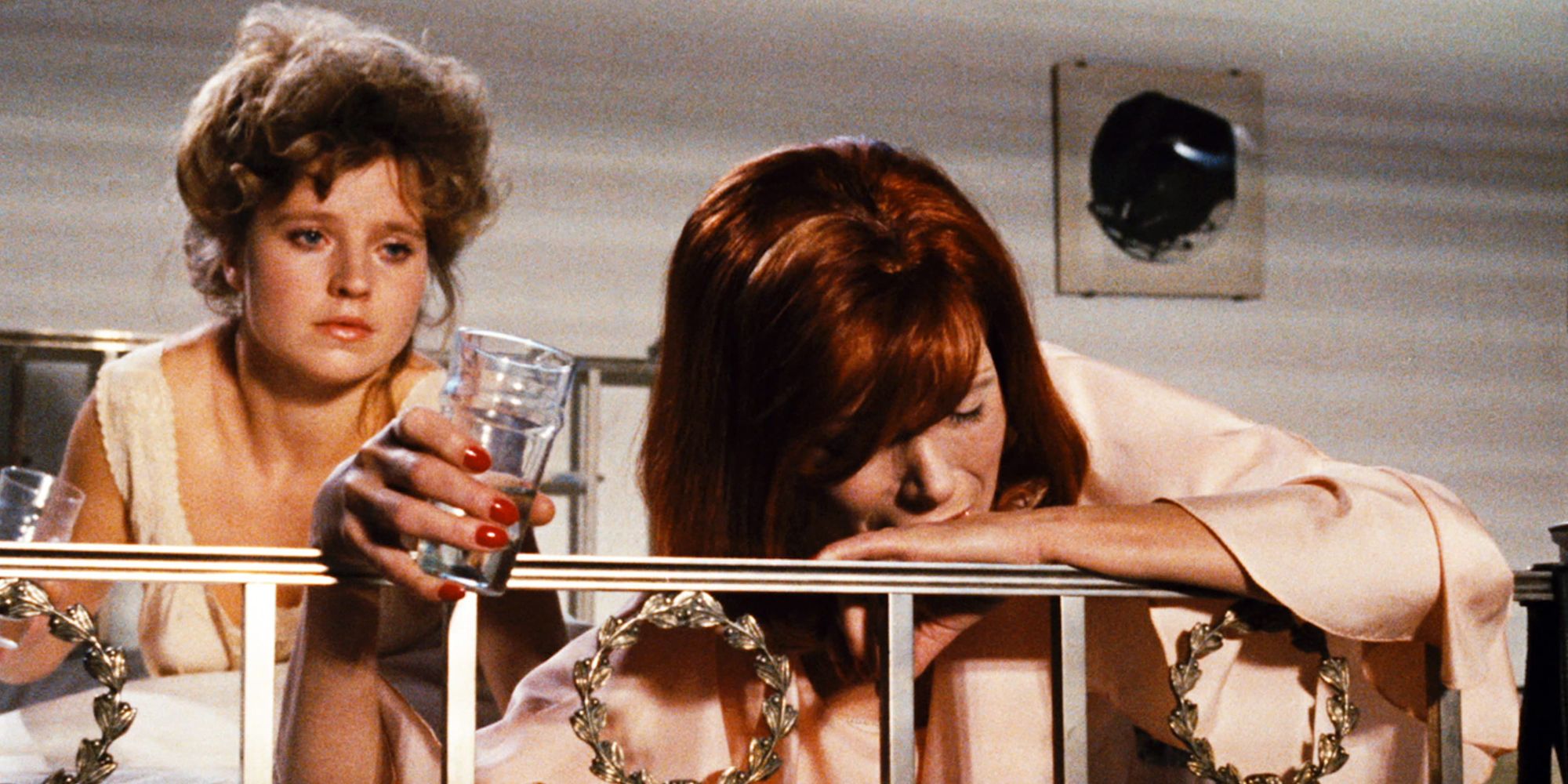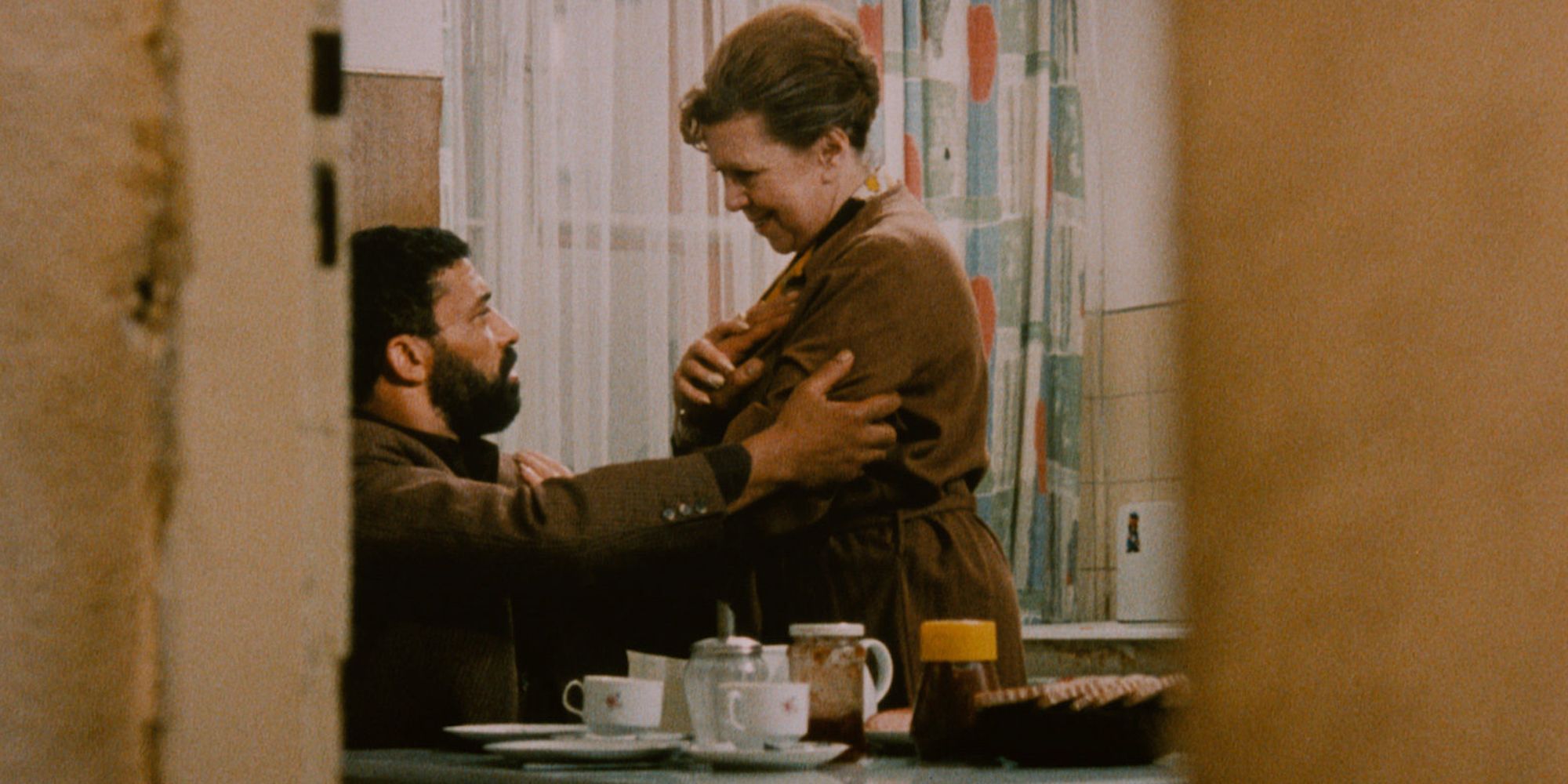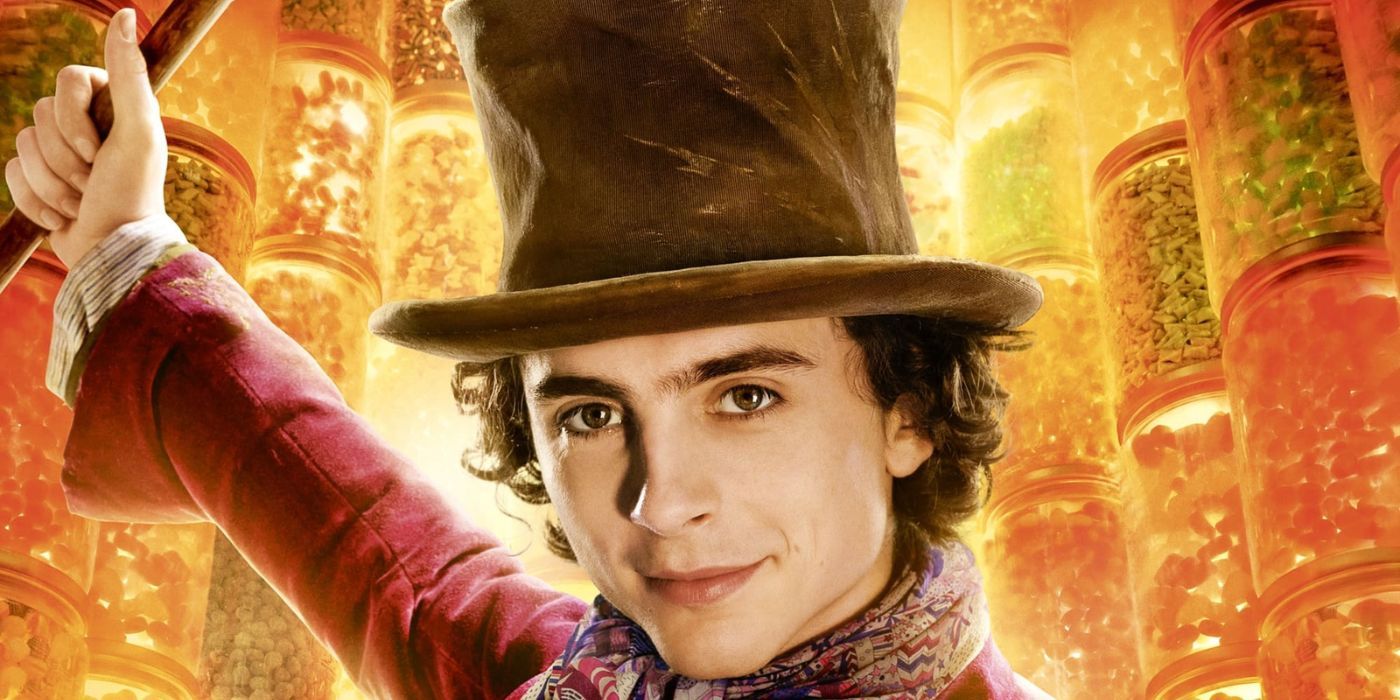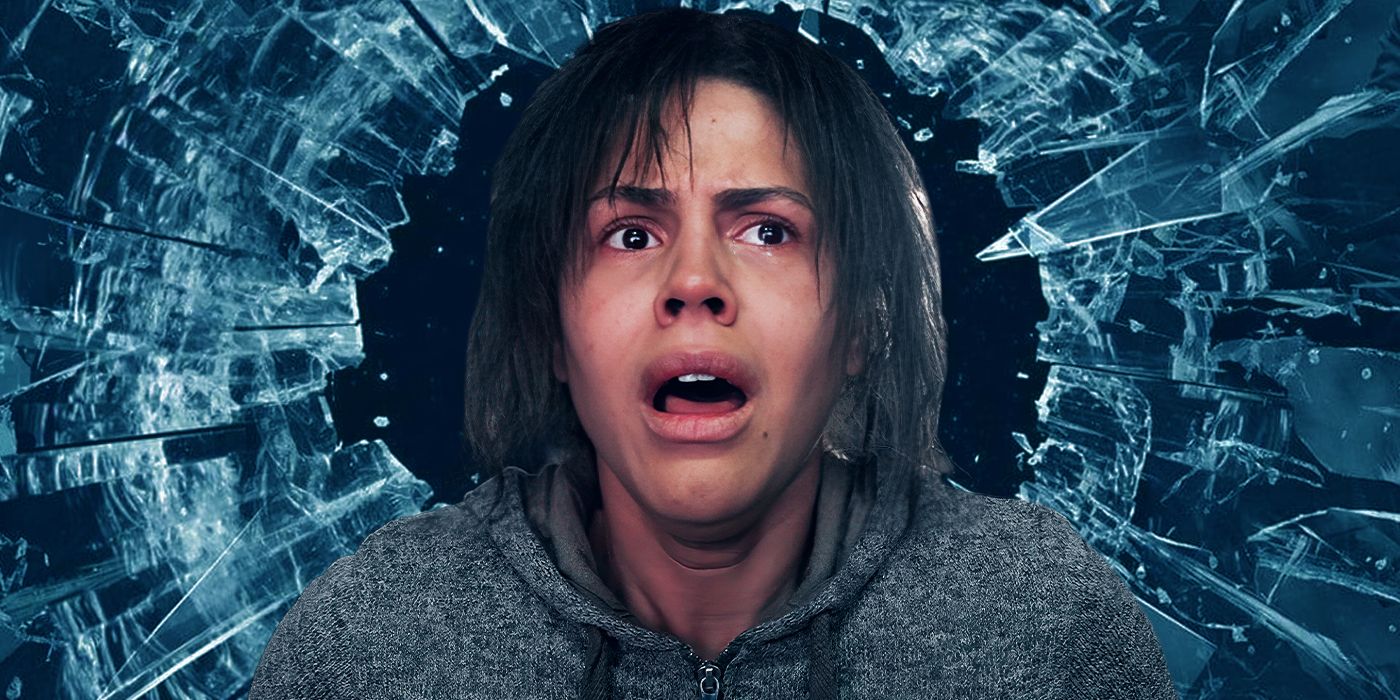Rainer Werner Fassbinder was a trailblazing German filmmaker active in the 1960s and ’70s. He made features for only about sixteen years, but in that time directed a whopping thirty films, plus a number of TV productions. He was also a polymath, not only writing and directing but frequently working on his movies as composer, production designer, cinematographer, producer, and editor.
Fassbinder is considered a major figure in New German Cinema, a movement that also included Wim Wenders and Werner Herzog. His work is very much concerned with life in postwar Germany. Many of his narratives examine the lingering aftereffects of the Nazi era on the society. Stylistically, Fassbinder often borrowed elements from earlier melodrama, like the work of director Douglas Sirk, but fused them with his own distinct sensibility and themes. The result is a fascinating body of work unlike that of any other filmmaker. These are the finest of his movies, ranked.
10 ‘Chinese Roulette’
Released: 1976
“What would this person have been in the Third Reich?” This bleak psychological drama revolves around a dysfunctional family and their twisted dynamics. It opens with husband and wife Ariane (Margit Carstensen) and Gerhard (Alexander Allerson) packing their bags, each preparing for a separate trip abroad. However, they’re both lying: each has secretly planned a weekend getaway with their respective lovers at their country house. They are shocked to find each other there but try to laugh it off and share a meal together.
Things grow even more complicated when their daughter Angela (Andrea Schober) turns up. Angela suggests they play a game involving questions and guessing. As the game unfolds, secrets and dark impulses start bubbling up to the surface. Soon, their holiday house becomes a pressure cooker of insecurities and pent-up aggression. Chinese Roulette works because all the characters are complex, neither wholly good nor wholly bad. Through them, Fassbinder pokes at ideas of repressed truth, making a comment not only about this family but postwar Germany as a whole.
Watch on Criterion
9 ‘In A Year With 13 Moons’
Released: 1978
In a Year with 13 Moons chronicles the final days in the life of Elvira Weishaupt (Volker Spengler), a transgender woman who has just been jilted by her abusive partner Christoph (Karl Scheydt). We follow her as she meets with several characters, attempting to reckon with her past and find some measure of understanding. Her life is defined by hardship and rejection: orphaned and raised by nuns, eking out an existence as a butcher, attempting to change herself to be what her lovers want. Above all, she seeks connection, but it seems forever beyond her grasp.
The film features several well-written monologues, including an intriguing scene where Elvira meets a hand who is preparing to hang himself. (“I don’t want things to go on simply because I perceive them,” he says cryptically.) In sum, this is a bold but somewhat uneven project, alternating between tragedy and humor, and with some striking juxtaposition of imagery. Spengler’s performance, however, was widely praised.
Watch on Criterion
8 ‘Lola’
Released: 1981
“Your hands will never be clean no matter how many times you clean them.” Lola (Barbara Sukowa) is a singer at a brothel in the small town of Coburg. However, she dreams of more, concocting a bold plot to gain greater wealth and influence. She deliberately becomes the focal point of a political power struggle between a corrupt property developer, Schukert (Mario Adorf), and a principled building commissioner, von Bohm (Armin Mueller-Stahl). Lola plays both men off one another with devilish skill.
Von Bohm even falls in love with Lola but is unaware of her job. Lola’s relationships with these two men intertwine with the larger narrative of postwar reconstruction and moral compromise. Once again, Fassbinder crafts a commentary about German society after the collapse of the Third Reich, with a focus on predatory economic arrangements. He contrasts the subject matter with the cinematography, which is gorgeous and vibrant, more like something you’d see in The Wizard of Oz.
Watch on Criterion
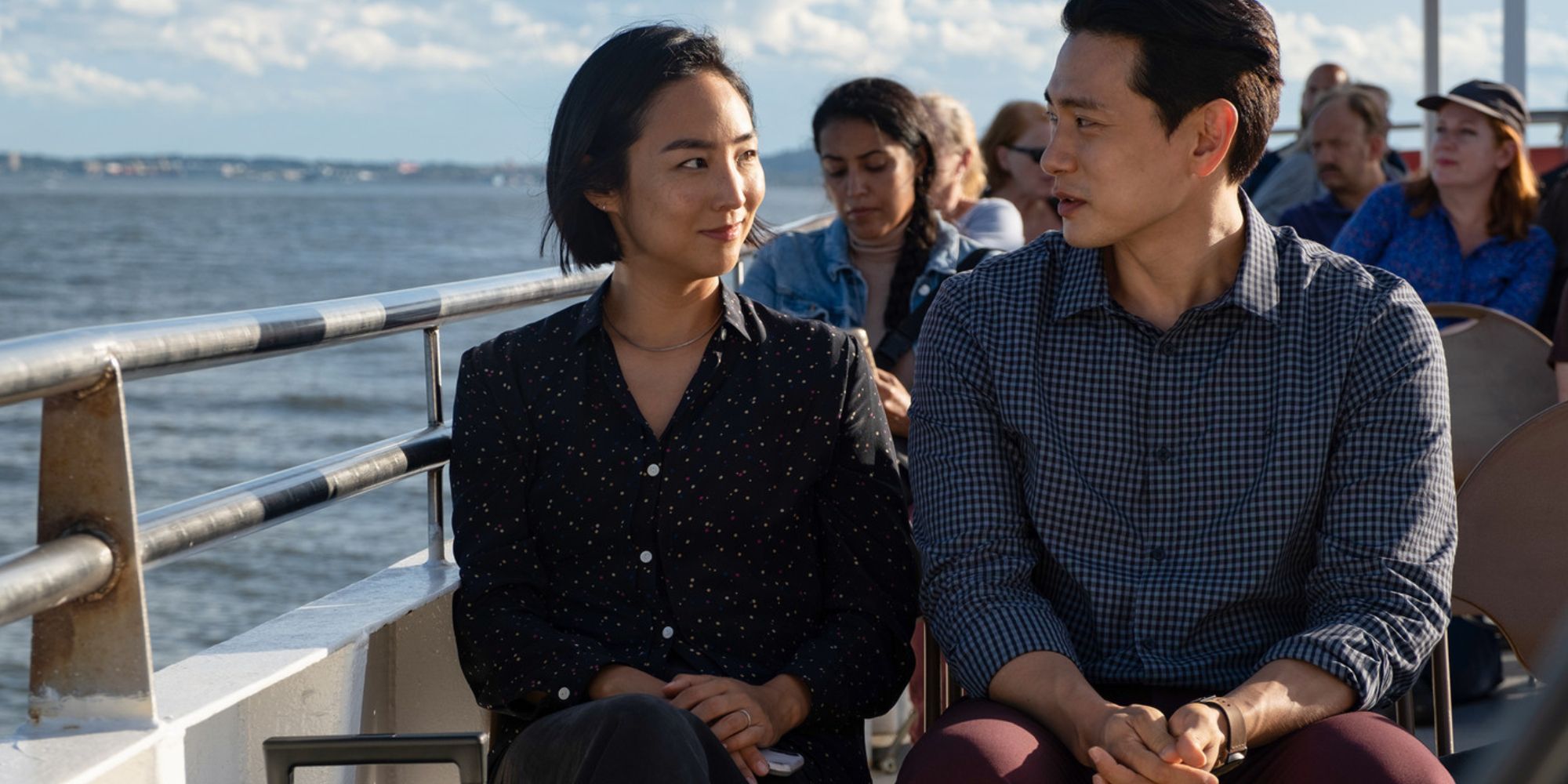
The 10 Best Foreign Language Movies of 2023, Ranked
Great movies come in many languages.
7 ‘Veronika Voss’
Released: 1982
Munich, 1955: Veronika Voss (Rosel Zech) is a faded movie star who was popular during the Nazi era, but is now reclusive and addicted to drugs. One day, she crosses paths with a sports journalist named Robert Krohn (Hilmar Thate) who, at first, does not know who she is. They have an unlikely connection, which becomes a romance. However, Robert is soon shocked to discover that Veronika is being manipulated by her psychiatrist, Dr. Katz (Annemarie Düringer). Katz is deliberately keeping Veronika hooked on morphine and is scheming to get her hands on what’s left of Veronika’s wealth.
Voss is a fascinating protagonist. She was once on top of the world, but now that world is gone, and she seems unable to move forward. Fassbinder based the character on Sybille Schmitz, a real German actress of the 1930s. In this regard, Veronika Voss is kind of like Fassbinder’s dark, atmospheric take on Sunset Boulevard. The film also draws on Fassbinder’s own experiences, as he too struggled with substance abuse.
Watch on Criterion
6 ‘Querelle’
Released: 1982
The enigmatic sailor Querelle (Brad Davis) comes ashore at the seedy port city of Brest, where he is soon entangled in a web of lust, betrayal, and murder. He spends time with his brother Robert (Laurent Malet) and Robert’s lover, the married brothel owner Lysiane (Jeanne Moreau), who falls for Querelle. Qurelle has his own designs, however. He’s a thief and drug smuggler who murders one of his accomplices to get his hands on their full consignment of opium. He also sleeps with Lysiane’s husband Nono (Günther Kaufmann) and plans to frame someone else for his crimes.
Querelle’s presence soon destabilizes the characters’ lives, causing turmoil. As this antihero navigates the dangerous waters of desire and crime, Fassbinder infuses the film with surreal and stylized visuals. He deliberately rejects realism here, instead using vivid, almost expressionist lighting and what are obviously sets on a sound stage. Thematically, the movie boldly explores themes of sexuality, masculinity, and recklessness.
Watch on Criterion
5 ‘Fox and His Friends’
Released: 1975
Fassbinder himself stars in this drama as Franz “Fox” Bieberkopf, a gay man from a working-class background who wins the lottery. His newfound wealth draws the attention of Eugen (Peter Chatel), the cultured son of a tycoon. Fox falls in love with Eugen, but Eugen seems to be simply using Fox and tries to change him to fit in with his upper-class social circle. Fox is hopelessly naïve, falling prey to exploitation by several characters.
Fox and His Friends is a tragic tale, similar in tone to In a Year With 13 Moons. Fox is a permanent outsider, neither at home in Eugen’s world nor his own. This makes for decidedly bleak viewing, but there’s sharp social commentary behind all of Fox’s failed attempts at connection. In particular, Fassbinder takes aim at the destructive effects of money, whether from having too little or too much. Aesthetically, the film is also daring at times. The title shot, for example, is well-known and highly regarded.
Watch on Criterion
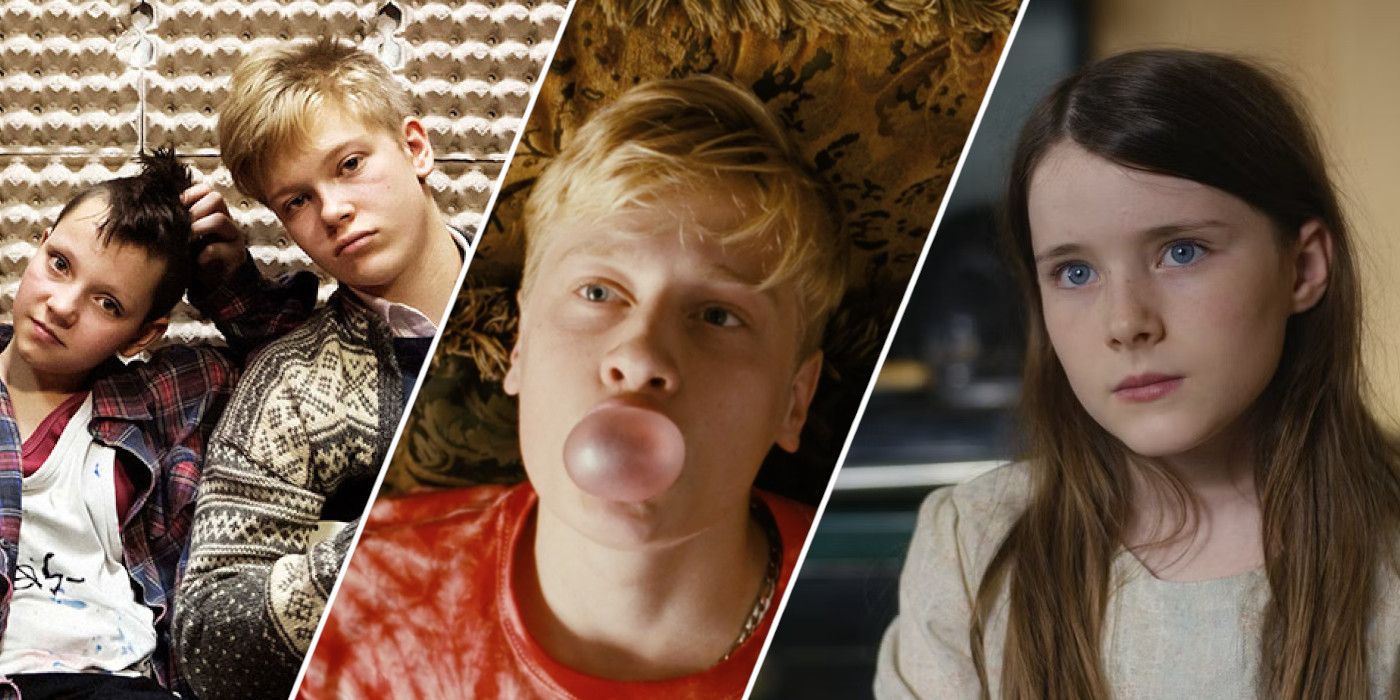
The 10 Best Underrated International Coming-of-Age Films
“Don’t you ever just wish you were a dude?”
4 ‘The Merchant of Four Seasons’
Released: 1972
“The good die young, and people like you come back.” The Merchant of Four Seasons is a character study of Hans Epp (Hans Hirschmüller), a former police officer and World War II veteran who has fallen on hard times. In a desperate attempt to earn some money for his family, he begins selling fruit and vegetables on the street. When he’s not working, Hans is arguing with his wife (Irm Hermann) or drinking. He’s haunted by his war experiences and by unfulfilled ambitions.
Over the course of the film, Han’s behavior becomes increasingly volatile and self-destructive, to the point that some kind of major conflagration seems inevitable. Fassbinder films his decline by borrowing elements from melodrama, particularly Douglas Sirk. The result is a unique portrait of a man and his society, which connected with many viewers on release. The Merchant of Four Seasons drew Fassbinder significant international attention, boosting his profile and serving as a turning point in his career.
Watch on Criterion
3 ‘The Marriage of Maria Braun’
Released: 1979
“You’re not having an affair with me. I’m having an affair with you.” Maria Braun (Hanna Schygulla) marries soldier Hermann (Klaus Löwitsch) during the dying days of World War II, only for him to later go missing on the eastern front. Believing him to be dead, Maria fights for survival in postwar Germany, doing whatever she needs to in order to get by. When Hermann surprisingly returns, their devotion to one another is as strong as ever – so much so that Maria kills a man for him, and he takes the blame for her.
While Hermann is in prison for the crime, Maria uses her guile, tenacity, and allure to get ahead, but other forces threaten to keep the lovers apart. The Marriage of Maria Braun balances out Fassbinder’s arthouse preoccupations with a more mainstream sensibility, which explains why it was one of his bigger commercial successes. It was also critically acclaimed, especially for the cold, complex lead performance by Schygulla.
Watch on Criterion
2 ‘The Bitter Tears of Petra Von Kant’
Released: 1972
Set almost entirely in an apartment bedroom, The Bitter Tears of Petra von Kant delves into the turbulent love life of the titular character (Margit Carstensen), a successful but emotionally volatile designer. Petra is in a sadomasochistic relationship with her assistant Marlene (Irm Hermann) but finds herself falling in love with the 23-year-old Karin (Hanna Schygulla), an aspiring model. She invites Karin to move in with her Marlene, naturally leading to jealousy and conflict.
Across five acts, we witness the dysfunction and toxicity of Petra’s relationships. Her apartment becomes a claustrophobic prison of narcissism and neuroses. The characters lash out at each other with their own individual brands of cruelty in ways that can be tough to watch. The writing and performances are realistic, but the staging and Fassbinder’s camera have some experimental flourishes, and he gets the most out of this limited setting. The highlight, however, is the towering, wide-ranging performance from Carstensen. She’s spellbinding throughout and somehow manages to make Petra both loathsome and understandable.
.
Watch on Criterion
1 ‘Ali: Fear Eats the Soul’
Released: 1974
Ali: Fear Eats the Soul tells the story of the unlikely romance between Emmi (Brigitte Mira), a 60-year-old German widow, and Ali (El Hedi ben Salem), a 40-year-old Moroccan immigrant. Emmi’s friends react to their relationship with shock. Her children think she’s lost her mind. Emmi and Ali are both warmhearted and lovable, and their mutual affection is obvious, but the distance between them sometimes threatens to get in the way.
This is a poignant love story, as well as a statement on the immigrant experience and various forms of prejudice in 1970s Germany. The drama could have been over-the-top, but Fassbinder keeps it grounded by focusing on the quiet moments. In the film’s best scenes, his sensitive direction transcends the specific context to offer a universal commentary on the corrosive nature of fear and mistrust in society. An assured accomplishment, Ali: Fear Eats the Soul is a great starting place for newcomers curious to explore Fassbinder’s filmography.
Watch on Criterion

